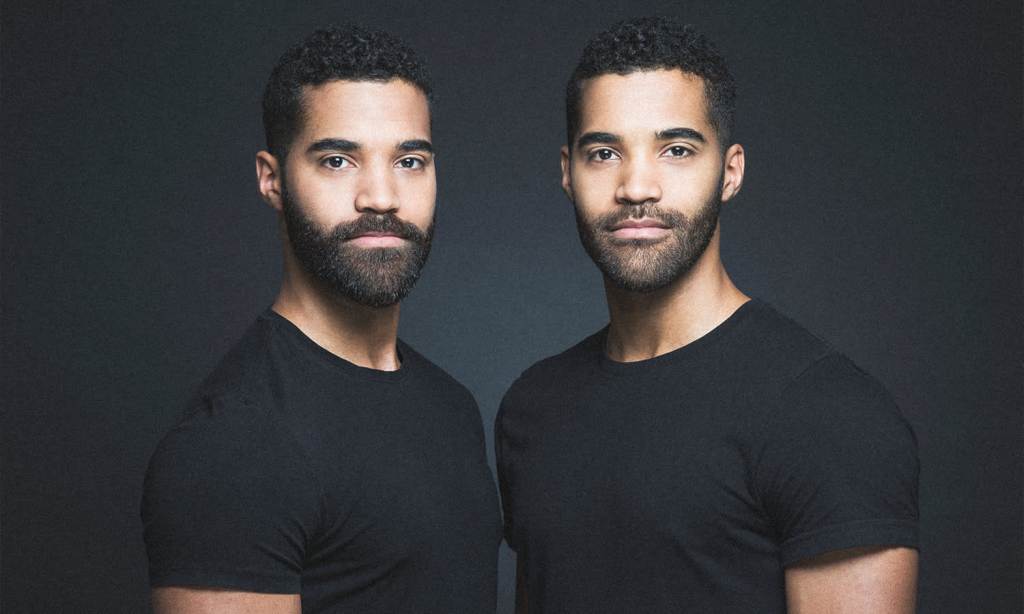If you’ve ever felt like no one out there really gets what it’s like to be you, specifically because no one is physically the same as you are, well, rest assured because you are not nearly as much of an individual as you think you are.
If you’re familiar with the concept of the ‘doppelgänger’, maybe from a need to feel sophisticated by using foreign words or from bad TV dramas, you’ll know that having a ‘body double’ is a bit of a myth. Anecdotally, there have always been reports of people who have an exact, unrelated lookalike, but we’ve never had a way to test that as a scientific concept.
Now though, with the power of the internet and online photo sharing, finding doppelgängers has become much, much simpler.
Canadian artist François Brunelle has an ongoing project called ‘I’m Not a Look-Alike!’ in which he photographs unrelated but similar-looking individuals. The project started over two decades ago and has been turned into a book as well as several gallery showings. It’s pretty weird and you yourself can submit photos of your look-alike to be added to the project.
Scientists in Spain wanted to examine exactly why these people look so similar and so they recruited 32 people from the I’m Not a Look-Alike! project and analysed their DNA. Turns out, the reason these doppelgängers look alike is because they have very similar genetic patterns.
Their analysis revealed that nine out of the 16 pairs shared a lot of “single nucleotide polymorphisms (SNPs)” which are genetic variations that determine physical characteristics, including looks. These SNPs are common mutations in human genetic code although they’re typically random. However, having the same or very similar random mutations as another person seems to predict that you’re physically going to look like them.
“Our study shows genetic markers that are critical in the development of the shape of the nose, lip, and mouth, plus completely novel determinants of bone structure and skin texture that also provide characteristic features of our face,” said lead author Dr Manel Esteller.
It gets weirder though. Among the 16 pairs, many had similar weights, similar lifestyles, and similar behaviours. Things like smoking and education level were very similar in these look-alike pairs, which suggests that your genes play a much larger role in determining how you behave and what your future might look like than we thought.
The team believe this information could be used to solve crimes, by finding people with similar genetic codes to a suspect and using that to re-create their faces. It could also be used in reverse, determining genetic makeup from facial structure and using that to predict the likelihood of certain diseases.
True doppelgängers are however rare. One study suggests that there is a one in 135 chance that a single pair of truly identical doppelgängers exist anywhere on Earth. However, the fact that Brunelle has photographed over 200 pairs of these very similar-looking people suggests that the likelihood of having someone with very similar characteristics is much less.
BBC analysis puts the figure at one in 100,000 of finding someone who has certain identical characteristics to you, even if you might not be mistaken for the same person when stood next to each other. With nearly 8 billion people on the planet, that means there could be 80,000 people who look similar to you.
The Instagram account Siblings or Dating is a popular riff on this idea. It posts photos of people who look strikingly similar and asks whether they are siblings or dating. Some are easy to tell apart, others are truly terrifying.
“Because the human population is now 7.9 billion, these look-alike repetitions are increasingly likely to occur,” Dr Esteller said.
If you want to have a go at finding your own doppelgänger, there are a range of websites out there dedicated to helping you do just that. Although you might not want to try it if you’re superstitious, as old European folklore says that seeing your doppelgänger means your death will soon follow.
Related: Want to Be Happier? Science Suggests You Try These 10 Simple Actions
Related: Science Tells Us What Makes Us Attractive, But We Don’t Have to Listen
Read more stories from The Latch and subscribe to our email newsletter.







